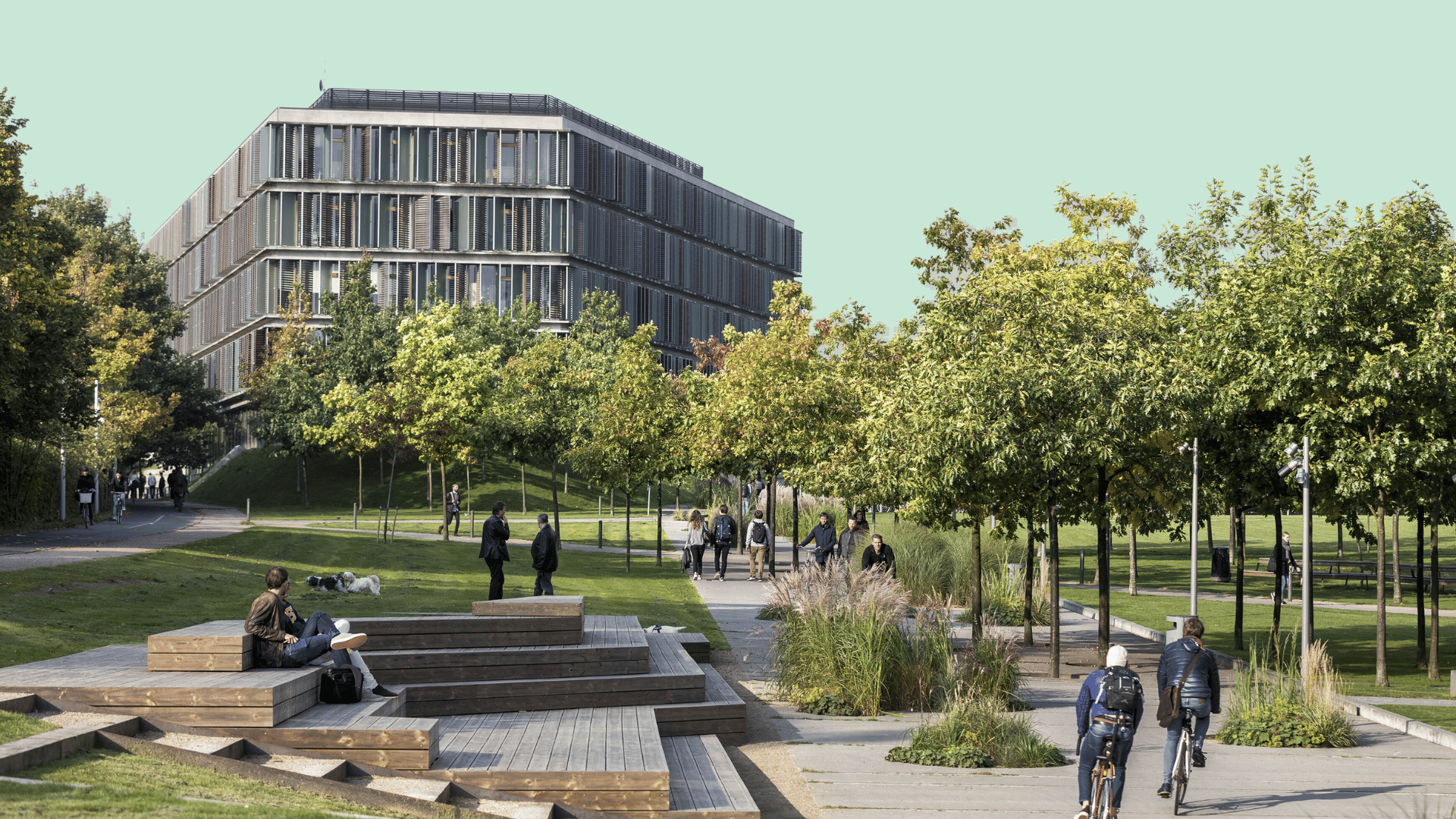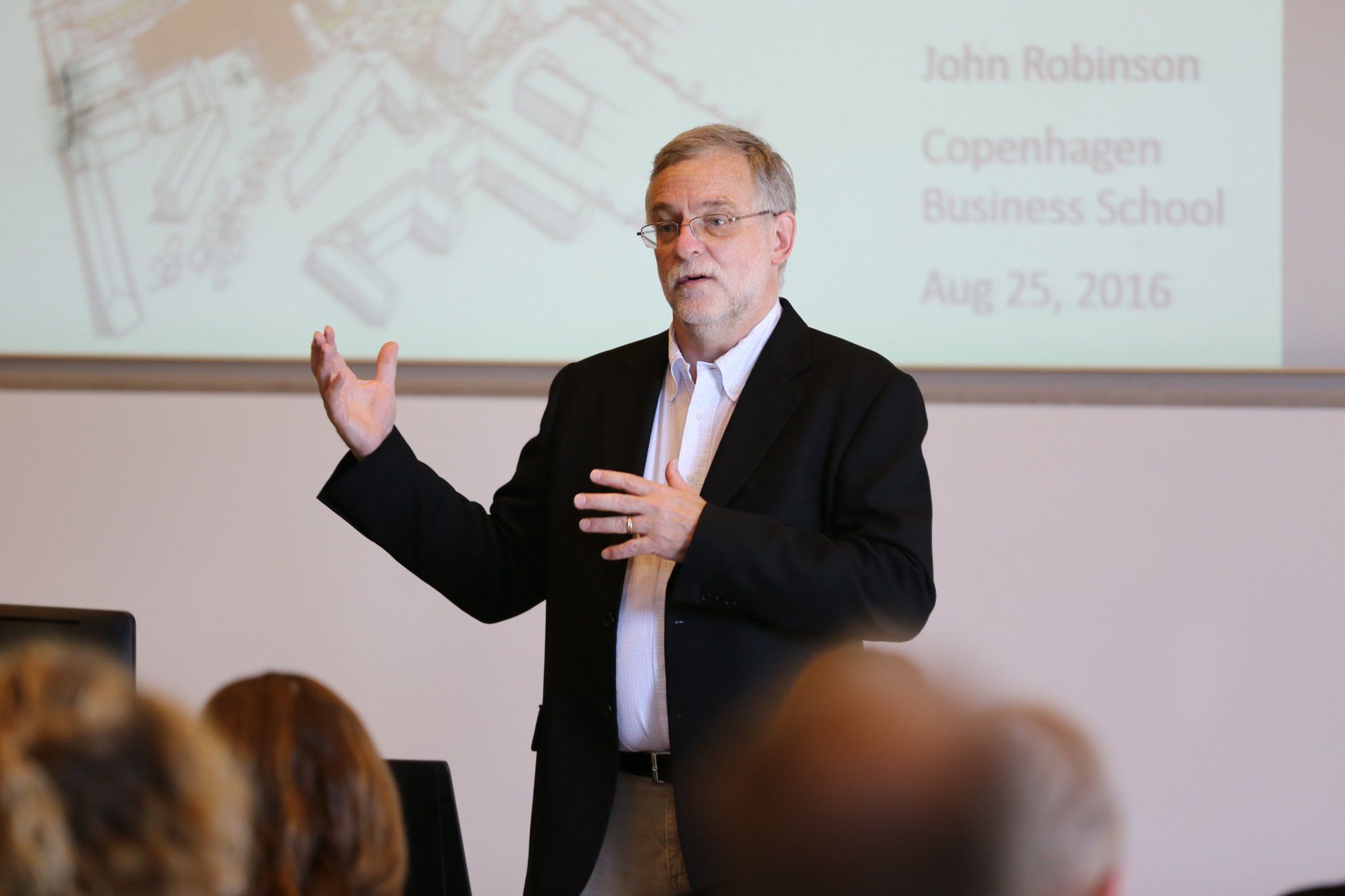
Thursday 25 August marked the beginning of Professor John Robinson’s adjunct professorship at CBS. To a packed full auditorium, he gave his inaugural lecture about universities as test-beds for regenerative sustainability with the clear advice for CBS: make sustainability a strategic priority.
The social contract between the university sector and society at large is shifting. It is no longer enough for universities simply to educate students and do research. That was one of the main messages that Professor John Robinson wanted to get across as he last Thursday gave his inaugural lecture as part of his adjunct professorship with the CBS Department of Intercultural Communication and Management.
A university or a business school such as CBS is increasingly expected to contribute directly to the big challenges faced by the society in which it exists and is financed. One such challenge is sustainability, and the world is – in the words of the professor – dying to engage with the university sector because it can do things that are hard to do elsewhere.
The reason for this is the shared set of characteristics of universities that make them uniquely qualified to play a living lab role in the sustainability transition, understood as encompassing both environmental and human wellbeing.

Besides educating and conducting research, universities are, by and large, single decision-makers with respect to a significant capital stock at an urban neighbourhood scale, consisting of multiple academic buildings, energy, water and waste systems, and student housing. Most importantly, universities have a public mandate and are, in a Danish context, public institutions, that can be more forgiving on paybacks, and long-sighted on returns.
No other societal institution has this mix of capabilities. Hence, the sustainability challenge is also an opportunity for universities to become test-beds for sustainability, treating their whole campus as a sand box to implement, test, research, and teach sustainability, and in that way to contribute directly to the significant changes required to reach a sustainable future.
CBS in particular has a unique opportunity due to the role of business in the sustainability transition. Professor Robinson, who shares the Nobel Peace Prize of 2007 for his work on the Intergovernmental panel on Climate Change with Al Gore, talked right into the Public-Private Platform as such partnerships are needed to increase human as well as environmental wellbeing.
Such an approach, however, calls for a reframing of the sustainability agenda from being less bad to doing more good. This is what the professor refers to as regenerative sustainability. Instead of placing limits and constraints by telling people to cut back and reduce consumption; a net zero focus, which turns out not to be a super motivating agenda, his focus is on being net positive.
Treating sustainability as a strategic academic and operations opportunity, which was Professor Robinson’s advice to CBS, will not only help to fulfil the terms of a new social contract of responsibility between universities and society, but is also likely to have real benefits to the university in terms of partnerships, funding, not to mention recruitment of students, faculty, and staff.
Click here to watch the lecture.

Jannick Friis Christensen is Research Assistant at the Dept. of Organization and Kristjan Jespersen is Doctoral Fellow at the Deptartment of Intercultural Communication and Management.
